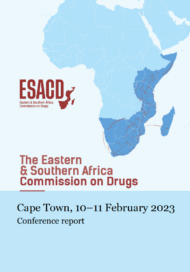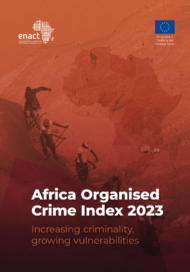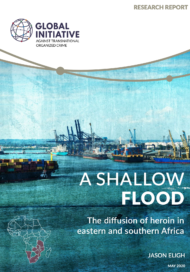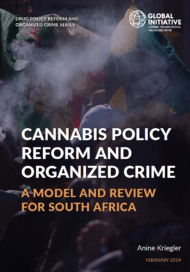Posted on 11 Feb 2023
Countries in Eastern and Southern Africa are facing increasingly complex challenges relating to drug consumption and trafficking. These challenges have not been met with effective responses, with governments instead often replication and repeating the demonstrably failed policies of the past. In a bid to address this serious and multifaceted problem, the Eastern and Southern Africa Commission on Drugs (ESACD) was formally launched in February 2023, chaired by former South African President Kgalema Motlanthe and modelled on the experiences of the West Africa Commission on Drugs (WACD). The ESACD is a high-level regional advocacy body that aims to promote informed discussion about humane and effective drug policies, as well as to develop local and regional awareness, engender public discussions and engage with policymakers to discuss new approaches to drug-related issues. Its creation was informed by the Global Commission on Drug Policy (GCDP), for which former President Motlanthe is a commissioner.
The inaugural meeting of the commission took place in Cape Town, South Africa, on 10 and 11 February, as the first in a series of regional consultations to be hosted on the issue of drug policies and drug markets in Eastern and Southern Africa. The launch gathered high-level officials from the GDCP, the ESACD and the WACD, together with representatives from international and regional organizations, civil society and academia. Former President Motlanthe opened the meeting and marked the official launch of the commission, alongside the chair of the GDCP, former Prime Minister of New Zealand Helen Clark, and the chair of the WACD, former President of Nigeria Olusegun Obasanjo. They were joined by ESACD commissioners former President of Mozambique Joaquim Chissano, former President of Mauritius Cassam Uteem and Professor of Clinical Epidemiology Quarraisha Abdool Karim. The event was co-hosted by the European Union, through the ENACT project, and the Global Initiative Against Transnational Organized Crime, which serves as the secretariat of the commission.
To begin the regional consultations, the launch discussions centred on four key aspects of the drug challenge: illicit drug markets and responses in the region; health impacts, with a focus on infectious disease transmission and improving access to medicines in Africa; the impact of drug policies on the youth; and the role of civil society in developing evidence-based drug policy. The following report summarizes the discussions that took place at the ESACD launch and outlines the main themes that emerged, as well as the points of consensus and areas for further discussion. The meeting was held under the Chatham House Rule, with the comments made not attributed to individual speakers.




